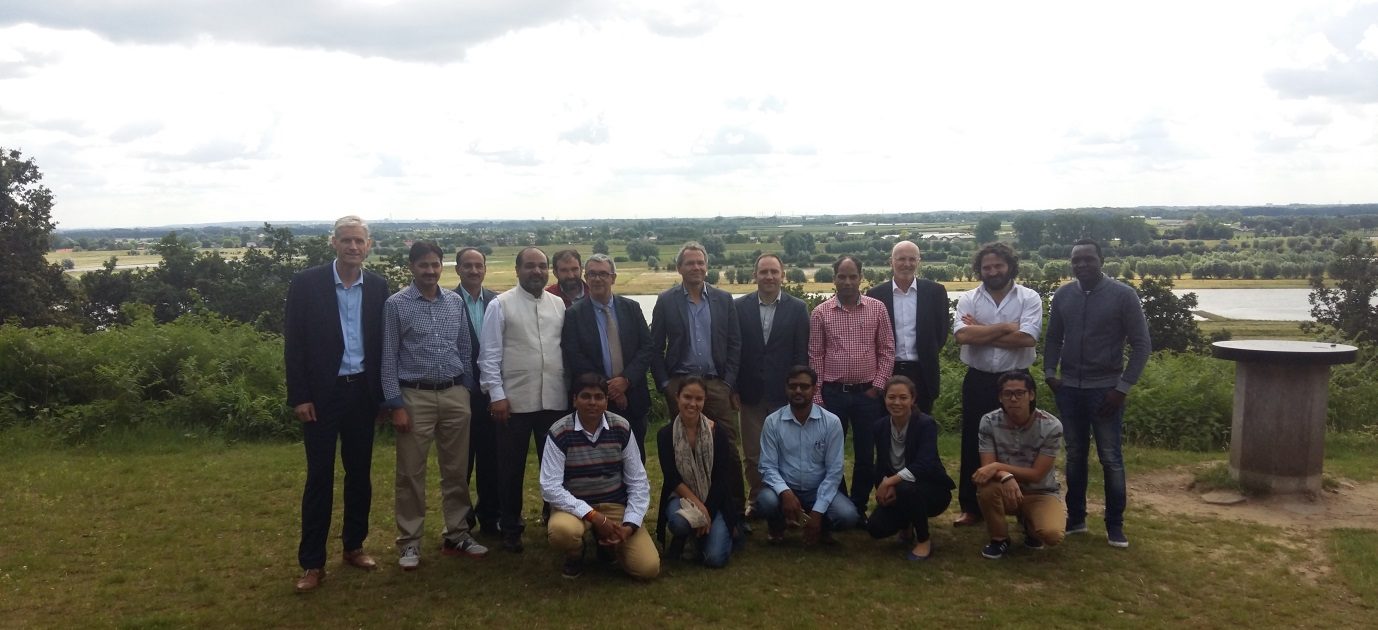WAGENINGEN, Netherlands — Although agriculture in the Indo-Gangetic Plains of South Asia, heartland of the Green Revolution, is essential to the food security and livelihoods of smallholder farmers, it is one of the most vulnerable regions to climate change variability. To cope with climate change variability and impacts, several climate-smart agricultural practices (CSAPs) have proved to increase crop productivity, resilience and adaptive capacity in the region’s agro-ecological zones. However, farmers’ perceptions of climate vulnerability and their response to CSAPs vary with their biophysical and socioeconomic circumstances, which can limit technology targeting and large-scale adoption by a diversity of farmers. Research aimed at understanding farming systems level opportunities and challenges has been conducted in order to promote sustainable agricultural intensification and develop a portfolio of CSAPs adapted to local conditions and diverse farm typologies.
With a similar objective, a workshop on farming systems analysis titled “Quantitative tools to explore future farming systems options and formalize trade-offs and synergies for their sustainable intensification in South Asia” was held at Wageningen University (WUR), The Netherlands, on 5-7 July 2016, under the aegis of the CGIAR Research Program on Climate Change, Agriculture and Food Security (CCAFS) and the Indian Council for Agricultural Research (ICAR). Students, scientists and professors from ICAR, WUR, the International Food Policy Research Institute (IFPRI), CIMMYT, the Borlaug Institute for South Asia (BISA), and state agriculture universities India participated in the event, which was jointly coordinated by Santiago López and M.L. Jat, CIMMYT, and Jeroen Groot, WUR.
Santiago Lopez welcomed the participants and mentioned the workshop was aimed at promoting, among other things, an understanding of farming systems modeling and its scope in smallholder systems of South Asia; sharing advances on the parametrization of FarmDesign models; sharing results of research undertaken by WUR students on applying quantitative systems analysis in the Eastern Gangetic Plains (Bihar, India); and promoting the exchange of ideas among participants and experts from advanced research institutes on future research and collaboration opportunities.
Bruno Gerard, Director of CIMMYT’s Sustainable Intensification Program, highlighted the role farm level analysis plays in the program. Adam Komarek, IFPRI, talked about conservation agriculture and its role in increasing farm profits and reducing risks in western China. M.L. Jat provided his insights on how to promote large-scale adoption across Asia, while Gideon Kruseman from CIMMYT, Mexico, made a presentation on bio-economic modeling.
Jeroen Groot (WUR, FSE) gave a quick overview of FarmDesign and Fuzzy Cognitive mapping tools, while J.P. Tetrawal and H. S. Jat described how they applied the FarmDesign tool at two sites: Kota (India) and Karnal (India). A.K. Prusty and Vipin Kumar, ICAR-Indian Institute of Farming Systems Research (ICAR-IIFSR), described activities being undertaken on integrated farming systems by ICAR-IIFSR and presented the results of FarmDesign analyses.
Challenges faced during FarmDesign parameterization and interpretation were presented by the participants and solutions were discussed. A visit to the computer lab of WUR’s Farming Systems Ecology (FSE) provided hands-on experience in applying FarmDesign. At a debugging session, participants were helped by the expertise of resource persons and helped each other learn specific applications of FarmDesign.
At a planning session aimed at exploring project options, it was decided that a FarmDesign user group should be created for exchanging ideas and helping each other address issues related to the application of FarmDesign. A workshop will be held in India in November, 2016, to review the progress of the work being carried out, explore funding opportunities, and establish a faculty exchange program for capacity building and skill development.

 Capacity development
Capacity development